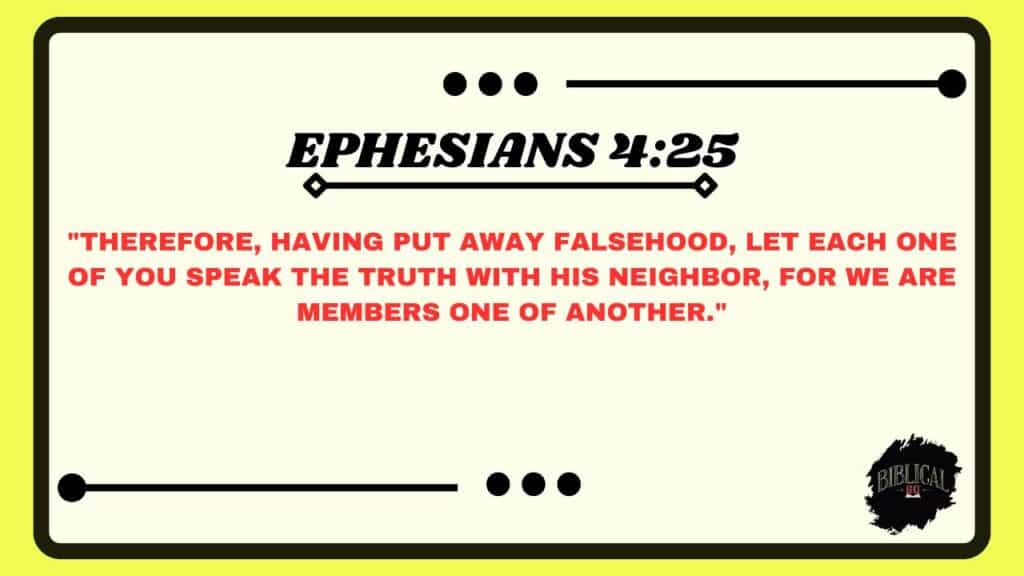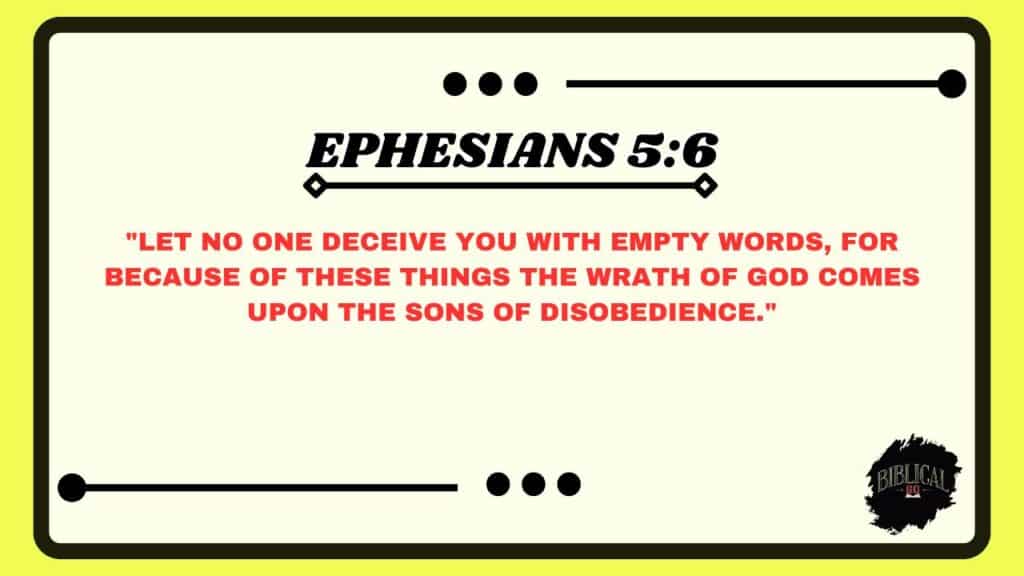Bible Verses About Thieves and Liars: In a world where honesty can sometimes feel like a rare commodity, Scripture provides timeless wisdom about the consequences of deception and theft. The Bible addresses these moral failings directly, offering both stern warnings and paths to redemption.
God’s Word doesn’t shy away from addressing the human tendency toward dishonesty. From the commandment “You shall not steal” to Jesus’s parables about truthfulness, Scripture consistently upholds integrity as a cornerstone of godly character.
These 37 verses about thieves and liars serve as both a mirror for self-examination and a guide for cultivating honesty in our relationships, businesses, and communities.
The Nature and Consequences of Dishonesty
Proverbs 12:22
“Lying lips are an abomination to the LORD, but those who act faithfully are his delight.”
This verse establishes God’s fundamental attitude toward dishonesty. The strong language (“abomination”) reveals how seriously God takes truthfulness in our speech. When we choose honesty, even when difficult, we bring God delight rather than disappointment.
Exodus 20:15
“You shall not steal.”
This commandment, one of the ten given to Moses, is straightforward in its prohibition. Its simplicity and directness indicate that honesty in respecting others’ property is a foundational element of God’s moral law. We honor this command when we respect boundaries and others’ possessions.
Proverbs 6:16-19
“There are six things that the LORD hates, seven that are an abomination to him: haughty eyes, a lying tongue, and hands that shed innocent blood, a heart that devises wicked plans, feet that make haste to run to evil, a false witness who breathes out lies, and one who sows discord among brothers.”
This passage emphasizes that dishonesty isn’t just a surface behavior but reflects deeper heart issues. Notice that lying appears twice in this list, highlighting its seriousness. We should examine not just our words and actions but the motives behind them.
Leviticus 19:11
“You shall not steal; you shall not deal falsely; you shall not lie to one another.”

God’s instruction combines theft and lying, showing how these behaviors often go hand-in-hand. This verse emphasizes the communal impact of dishonesty. When we commit to truthfulness, we strengthen the bonds of trust within our communities.
John 8:44
“You are of your father the devil, and your will is to do your father’s desires. He was a murderer from the beginning, and does not stand in the truth, because there is no truth in him. When he lies, he speaks out of his own character, for he is a liar and the father of lies.”
Jesus identifies the spiritual source of dishonesty. This sobering verse connects lying with alignment with the enemy rather than with God. When we practice honesty, we reflect God’s character rather than the adversary’s.
Also Read: 37 Bible Verses About Mothers And Daughters (Explained)
Thieves in Scripture: Warnings and Examples
1 Corinthians 6:9-10
“Or do you not know that the unrighteous will not inherit the kingdom of God? Do not be deceived: neither the sexually immoral, nor idolaters, nor adulterers, nor men who practice homosexuality, nor thieves, nor the greedy, nor drunkards, nor revilers, nor swindlers will inherit the kingdom of God.”
Paul places theft among serious sins that characterize those outside God’s kingdom. The inclusion of thieves in this list emphasizes that dishonesty with others’ property reflects a heart not yet transformed by God’s grace. This verse calls us to examine whether our actions align with our professed faith.
Exodus 22:1
“If a man steals an ox or a sheep, and kills it or sells it, he shall repay five oxen for an ox, and four sheep for a sheep.”
God’s law required restitution beyond the value of what was stolen. This principle shows that theft damages not just property but relationships and community trust. True repentance for theft includes making things right, not merely feeling sorry.
Luke 19:8-9
“And Zacchaeus stood and said to the Lord, ‘Behold, Lord, the half of my goods I give to the poor. And if I have defrauded anyone of anything, I restore it fourfold.’ And Jesus said to him, ‘Today salvation has come to this house, since he also is a son of Abraham.'”
Zacchaeus demonstrates genuine repentance from dishonest gain through generous restitution. Jesus affirms this transformation as evidence of salvation. When we encounter our own dishonesty, Zacchaeus shows us the path of making amends that goes beyond the minimum requirement.
John 10:10
“The thief comes only to steal and kill and destroy. I came that they may have life and have it abundantly.”
Jesus contrasts his life-giving mission with the destructive intent of the thief. This metaphor extends beyond literal theft to anything that robs us of God’s intended abundance. We can ask ourselves whether our actions bring life to others or diminish it.
Matthew 6:19-20
“Do not lay up for yourselves treasures on earth, where moth and rust destroy and where thieves break in and steal, but lay up for yourselves treasures in heaven, where neither moth nor rust destroys and where thieves do not break in and steal.”
Jesus offers a perspective shift about possessions. By valuing eternal treasures above material ones, we’re protected from both the fear of theft and the temptation to steal. Our security lies in what cannot be stolen rather than in what can.
The Destructive Power of Lies
Psalm 101:7
“No one who practices deceit shall dwell in my house; no one who utters lies shall continue before my eyes.”
David establishes integrity as a requirement for those in his presence. This verse reminds us that dishonesty damages relationships and community. We should cultivate environments where truthfulness is both expected and exemplified.
Proverbs 19:9
“A false witness will not go unpunished, and he who breathes out lies will perish.”
Scripture consistently warns about the consequences of dishonesty. This verse emphasizes that lying brings inevitable negative outcomes. Truth-telling may be difficult in the moment but spares us long-term consequences.
Colossians 3:9-10
“Do not lie to one another, seeing that you have put off the old self with its practices and have put on the new self, which is being renewed in knowledge after the image of its creator.”
Paul connects honesty with our new identity in Christ. Truthfulness isn’t just a moral obligation but an expression of who we are becoming through Christ. Our commitment to honesty reflects the ongoing transformation of our character.
Proverbs 12:19
“Truthful lips endure forever, but a lying tongue is but for a moment.”
This proverb contrasts the lasting value of truth with the temporary nature of deception. While lies may seem expedient, they ultimately cannot stand. Building our lives and relationships on truth creates enduring stability.
Revelation 21:8
“But as for the cowardly, the faithless, the detestable, as for murderers, the sexually immoral, sorcerers, idolaters, and all liars, their portion will be in the lake that burns with fire and sulfur, which is the second death.”

This sobering verse includes liars among those facing eternal consequences. The severity of this warning demonstrates God’s view of dishonesty as fundamentally opposed to His character. God’s truth-filled kingdom has no place for persistent deception.
Also Read: 36 Bible Verses About Cheating Husbands (Explained)
Repentance and Redemption for the Dishonest
Ephesians 4:28
“Let the thief no longer steal, but rather let him labor, doing honest work with his own hands, so that he may have something to share with anyone in need.”
Paul outlines the transformation from thief to giver. This verse shows how grace leads not just to stopping negative behavior but to its opposite generosity. Those who have struggled with taking from others can become those who joyfully give.
1 Corinthians 6:10-11
“Nor thieves, nor the greedy, nor drunkards, nor revilers, nor swindlers will inherit the kingdom of God. And such were some of you. But you were washed, you were sanctified, you were justified in the name of the Lord Jesus Christ and by the Spirit of our God.”
Paul acknowledges that some believers were formerly thieves but have been transformed. This powerful reminder of redemption offers hope that no one is beyond God’s power to change. Our past dishonesty doesn’t define our future when we surrender to Christ.
Proverbs 28:13
“Whoever conceals his transgressions will not prosper, but he who confesses and forsakes them will obtain mercy.”
This proverb offers the path to restoration through confession and repentance. Hiding dishonesty only compounds its damage, while acknowledging it opens the door to healing. This principle applies to both our relationship with God and with others.
Luke 23:39-43
“One of the criminals who were hanged railed at him, saying, ‘Are you not the Christ? Save yourself and us!’ But the other rebuked him, saying, ‘Do you not fear God, since you are under the same sentence of condemnation? And we indeed justly, for we are receiving the due reward of our deeds; but this man has done nothing wrong.’ And he said, ‘Jesus, remember me when you come into your kingdom.’ And he said to him, ‘Truly, I say to you, today you will be with me in paradise.'”
A condemned thief finds redemption in his final moments through honest confession and faith. This powerful scene demonstrates that it’s never too late to turn from dishonesty toward truth. Jesus’s response shows his readiness to forgive those who acknowledge their wrongdoing.
2 Corinthians 7:10
“For godly grief produces a repentance that leads to salvation without regret, whereas worldly grief produces death.”
Paul distinguishes between mere remorse and true repentance. When caught in dishonesty, this verse guides us beyond feeling bad to genuine change. True repentance involves both sorrow for sin and commitment to a new path.
Also Read: 37 Important Bible Verses About Eagles (Explained)
Cultivating Honesty and Integrity
Proverbs 20:23
“Unequal weights are an abomination to the LORD, and false scales are not good.”
God condemns dishonest business practices. This principle extends beyond literal scales to any situation where we might misrepresent reality for gain. Integrity means maintaining the same standard of honesty in all contexts, both public and private.
Proverbs 3:3-4
“Let not steadfast love and faithfulness forsake you; bind them around your neck; write them on the tablet of your heart. So you will find favor and good success in the sight of God and man.”
Solomon connects faithfulness (which includes honesty) with both divine and human approval. Truth-telling is not merely avoiding wrongdoing but actively cultivating virtue. Consistent integrity builds a reputation that opens doors and opportunities.
Ephesians 4:25
“Therefore, having put away falsehood, let each one of you speak the truth with his neighbor, for we are members one of another.”

Paul grounds truthfulness in our interconnectedness as believers. Honesty isn’t just about personal virtue but about healthy community functioning. Our truthfulness contributes to the well-being of the entire body of Christ.
Proverbs 16:11
“A just balance and scales are the LORD’s; all the weights in the bag are his work.”
This proverb reminds us that God is the author of true standards. When we practice honesty in our dealings, we reflect God’s character and values. Our commitment to integrity acknowledges God’s authority over all human interactions.
Matthew 5:37
“Let what you say be simply ‘Yes’ or ‘No’; anything more than this comes from evil.”
Jesus calls for straightforward speech without deceptive qualifications. This teaching challenges us to cultivate such integrity that our word alone is trustworthy. Simple truthfulness eliminates the need for elaborate assurances.
Also Read: 35 Important Bible Verses About Dads And Daughters
Broader Principles of Trust and Truthfulness
Proverbs 11:1
“A false balance is an abomination to the LORD, but a just weight is his delight.”
God takes a personal interest in honest dealings. This verse emphasizes that integrity in transactions reflects our spiritual condition. Our business ethics and everyday honesty are spiritual matters that either please or displease God.
Proverbs 21:6
“The getting of treasures by a lying tongue is a fleeting vapor and a snare of death.”
Solomon warns against prosperity gained through deception. This proverb affirms that dishonest gain brings temporary reward but lasting harm. True prosperity comes through integrity rather than through shortcuts.
Zechariah 5:3-4
“Then he said to me, ‘This is the curse that goes out over the face of the whole land. For everyone who steals shall be cleaned out according to what is on one side, and everyone who swears falsely shall be cleaned out according to what is on the other side. I will send it out, declares the LORD of hosts, and it shall enter the house of the thief, and the house of him who swears falsely by my name. And it shall remain in his house and consume it, both timber and stones.'”
This prophecy describes divine judgment on thieves and liars. The imagery of complete destruction illustrates how dishonesty eventually undermines all areas of life. God’s standards of honesty apply universally and carry serious consequences when violated.
Acts 5:1-11
The story of Ananias and Sapphira, who lied about their giving and experienced divine judgment.
This sobering account demonstrates the seriousness of presenting a false image within the faith community. Their deception was ultimately against God, not merely other believers. While the consequence was severe, it reminds us that God values transparency and truth in his community.
James 5:12
“But above all, my brothers, do not swear, either by heaven or by earth or by any other oath, but let your ‘yes’ be yes and your ‘no’ be no, so that you may not fall under condemnation.”
James echoes Jesus’s teaching on straightforward speech. The emphasis on “above all” highlights the fundamental importance of truthfulness. Our simple word should be reliable enough that elaborate oaths become unnecessary.
Proverbs 24:28
“Be not a witness against your neighbor without cause, and do not deceive with your lips.”
This proverb warns against false testimony that harms others. It reminds us that our words have the power to damage others’ reputations and lives. Speaking truth is an act of justice and neighbor-love.
Psalm 15:1-2
“O LORD, who shall sojourn in your tent? Who shall dwell on your holy hill? He who walks blamelessly and does what is right and speaks truth in his heart.”
David connects truthfulness with dwelling in God’s presence. Note that integrity begins internally with “truth in his heart.” True honesty flows from within rather than being merely external compliance.
Proverbs 14:5
“A faithful witness does not lie, but a false witness breathes out lies.”
This proverb demonstrates how our character determines our speech. It challenges us to be people of consistency, whose testimony can be trusted. Being truthful is not merely about individual statements but about developing a trustworthy character.
Ephesians 5:6
“Let no one deceive you with empty words, for because of these things the wrath of God comes upon the sons of disobedience.”

Paul warns against being misled by those who minimize sin. This verse reminds us to be discerning about messages that contradict God’s standards. Not all persuasive speech is truthful speech.
Proverbs 13:5
“The righteous hates falsehood, but the wicked brings shame and disgrace.”
This proverb reveals that our attitude toward dishonesty reflects our spiritual condition. Growing in righteousness means developing an aversion to deception. We should cultivate not just the practice of honesty but a love for truth itself.
Also Read: 36 Important Bible Verses About Hunting (Explained)
Conclusion: Bible Verses About Thieves and Liars
These 37 Bible verses about thieves and liars reveal God’s high standard for integrity and honesty. Scripture consistently portrays dishonesty not as a minor flaw but as a serious offense against both God and community. Yet these same passages offer hope of transformation through repentance and God’s grace.
The biblical perspective on dishonesty invites self-examination. Rather than merely identifying others’ deception, Scripture challenges us to cultivate truthfulness in our own hearts, words, and actions. This journey toward integrity begins with acknowledging our own tendencies toward convenience over honesty.
As we apply these scriptures to our lives, we participate in creating communities characterized by trust rather than suspicion. In a world where deception is often rewarded in the short term, these verses remind us that God’s economy operates by different principles where truth endures and deception ultimately fails.
Practical Applications
- Create a personal accountability system: Identify areas where you might be tempted toward dishonesty (expense reports, tax returns, exaggerations) and establish safeguards.
- Practice confession: When you catch yourself in a lie or deception, make it a practice to confess and correct it immediately.
- Memorize key verses: Select 2-3 verses about honesty that particularly speak to your situation and commit them to memory.
- Study biblical examples: Spend time examining characters like Zacchaeus, Ananias and Sapphira, or Jacob, noting the consequences of both honesty and dishonesty.
- Pray for integrity: Ask God to reveal areas where you might be blind to your own dishonesty and for the courage to face the truth.
- Seek restoration: If you’ve benefited from dishonesty in the past, prayerfully consider what making amends might look like.
- Create a culture of honesty: In your family or workplace, establish clear expectations about truthfulness and ensure people feel safe telling difficult truths.
FAQ About Biblical Perspectives on Theft and Dishonesty
Does the Bible distinguish between “white lies” and other forms of dishonesty?
Scripture doesn’t categorize lies by size or intent but consistently upholds truthfulness as the standard. While the Bible records different consequences for various types of deception, it presents honesty as a character quality rather than a situational choice. Passages like Proverbs 12:22 and Colossians 3:9 address dishonesty broadly without offering exceptions for seemingly harmless deceptions.
If I’ve stolen or lied in the past, does the Bible offer guidance for making things right?
Yes! The story of Zacchaeus (Luke 19:1-10) provides a powerful example of restitution, where he voluntarily repaid four times what he had defrauded from others. Exodus 22:1-15 outlines principles of restitution in the Mosaic Law, often requiring repayment beyond what was taken. Confession, repentance, and making amends where possible are biblical principles for addressing past dishonesty.
How should Christians respond to being victims of theft or deception?
Scripture encourages forgiveness while still valuing justice. Matthew 18:15-17 outlines a process for addressing wrongs within the community of faith. Romans 12:17-21 advises against personal revenge while acknowledging the role of proper authorities in pursuing justice. Prayer for those who have wronged us (Matthew 5:44) is also part of the biblical response.
Can thieves and liars be forgiven by God?
Absolutely. The thief on the cross (Luke 23:39-43) received Jesus’s promise of paradise through faith and honest confession. 1 Corinthians 6:9-11 explicitly states that former thieves were among those washed, sanctified, and justified in Christ. God’s grace extends to all who genuinely repent, regardless of their past.
How can I develop greater honesty in my life?
Biblical wisdom suggests starting with heart examination (Psalm 51:6), since outward honesty flows from inward integrity. Practicing regular confession (1 John 1:9), surrounding yourself with truthful people (Proverbs 13:20), and developing accountability relationships can help. Scripture also encourages meditation on truth (Philippians 4:8) as a way to transform our thinking and, consequently, our speech and actions.
Read more knowledgeable blogs on Biblical Go

Piper McMillan is a devoted writer and Bible enthusiast, offering insightful guides on Bible verses. Her blog provides practical interpretations and reflections, helping readers deepen their faith and understanding of Scripture through accessible and inspiring content.



